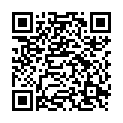|
|
|
| Module code: MAB_24_A_2.02.TFL |
|
3V+1U+1LU (5 hours per week) |
|
5 |
| Semester: 2 |
| Mandatory course: yes |
Language of instruction:
German |
Assessment:
Written exam 120 min. (graded)
Lab experiment (evaluated)
[updated 05.11.2020]
|
MAB_19_A_2.02.TFL (P241-0286, P241-0287) Mechanical and Process Engineering, Bachelor, ASPO 01.10.2019
, semester 2, mandatory course
MAB_24_A_2.02.TFL Mechanical and Process Engineering, Bachelor, SO 01.10.2024
, semester 2, mandatory course
PRI-TFL (P241-0286, P241-0287) Production Informatics, Bachelor, SO 01.10.2023
, semester 2, mandatory course
|
75 class hours (= 56.25 clock hours) over a 15-week period.
The total student study time is 150 hours (equivalent to 5 ECTS credits).
There are therefore 93.75 hours available for class preparation and follow-up work and exam preparation.
|
Recommended prerequisites (modules):
None.
|
Recommended as prerequisite for:
|
Module coordinator:
Prof. Dr. Jürgen Griebsch |
Lecturer: Prof. Dr. Jürgen Griebsch
[updated 29.10.2023]
|
Learning outcomes:
After successfully completing this course, students will be familiar with important manufacturing processes and the machine tools used.
They will be familiar with the characteristics and possible applications of the manufacturing processes according to DIN 8550.
Students will be able to select a process based on technical criteria for a production task and by weighing up the advantages and disadvantages.
They will be able to outline manufacturing chains for simple tasks.
Students will be familiar with the practical application of selected manufacturing processes according to DIN 8550.
[updated 05.11.2020]
|
Module content:
The quality and efficiency of industrial production depends on choosing the right manufacturing process and understanding that process. That is why knowledge about the various technologies is one of a production engineers important tools.
Basic components of manufacturing processes according to DIN 8550 are:
- Primary processing (e.g. casting)
- Forming
- Cutting
- Coating
- Modifying
We will also discuss joining to a limited extent, but it is one of the main focuses of the 5th semester in the lecture "Joining Techniques with Integrated Lab Course".
The content of the course is based on a roughly defined industrial process and will prepare students for the production engineering lab that accompanies the lecture.
The lecture will be combined with smaller practical exercises where students can work on topics, present them briefly and then discussion them.
[updated 05.11.2020]
|
Teaching methods/Media:
- Lecture with exercises and calculations on the blackboard
- Lab - Practical course
[updated 05.11.2020]
|
Recommended or required reading:
Spur, G.; Handbuch Fertigungstechnik in 5 Bänden; Hanser Verlag, 2016
Fritz, A.-H.; Fertigungstechnik; Springer Verlag, 2018; ISBN: 978-3-662-56535-3
Gebhardt, A.; Additive Fertigungsverfahren; Hanser Verlag, 2016; ISBN: 978-3-446-44539-0
Geiger, Walter / Kotte, Willi; "Handbuch Qualität, Grundlagen und Elemente des Qualitätsmanagements: Systeme _ Perspektiven"; ISBN: 978-3-8348-0273-6
Keferstein, Claus P. / Dutschke, Wolfgang; "Fertigungsmesstechnik Praxisorientierte Grundlagen, moderne Messverfahren"; ISBN: 978-3-8351-0150-0
Tschätsch, Heinz; "Praxis der Zerspantechnik - Verfahren, Werkzeuge, Strahlquellen, Systeme, Fertigungsverfahren; ISBN: 978-3-8351-0005-3
Ralf Berning; "Grundlagen der Produktion: Produktionsplanung und Beschaffungsmanagement (Taschenbuch)"; ISBN: 978-3464495131
König, Klocke; "Fertigungsverfahren 1-5: Fertigungsverfahren 1. Drehen, Fräsen, Bohren: Drehen, Frasen, Bohren: Bd 1 (Gebundene Ausgabe)"; ISBN: 978-3540234586
Fritz, Schulze; "Fertigungstechnik (VDI)"; ISBN: 978-3540766957
Westkämper, Engelbert / Warnecke, Hans-Jürgen; "Einführung in die Fertigungstechnik"; ISBN: 978-3-8351-0110-4
Habenicht, Gerd; "Kleben - erfolgreich und fehlerfrei - Handwerk, Praktiker, Ausbildung, Industrie"; ISBN: 978-3-8348-0019-0
Hügel, Helmut / Graf, Thomas; "Laser in der Fertigung (Arbeitstitel)- Strahlquellen, Systeme, Fertigungsverfahren; ISBN: 978-3-8351-0005-3
Ralf Berning; "Grundlagen der Produktion: Produktionsplanung und Beschaffungsmanagement (Taschenbuch)"; ISBN: 978-3464495131
König, Klocke; "Fertigungsverfahren 1-5: Fertigungsverfahren 1. Drehen, Fräsen, Bohren: Drehen, Frasen, Bohren: Bd 1 (Gebundene Ausgabe)"; ISBN: 978-3540234586
[updated 05.11.2020]
|

